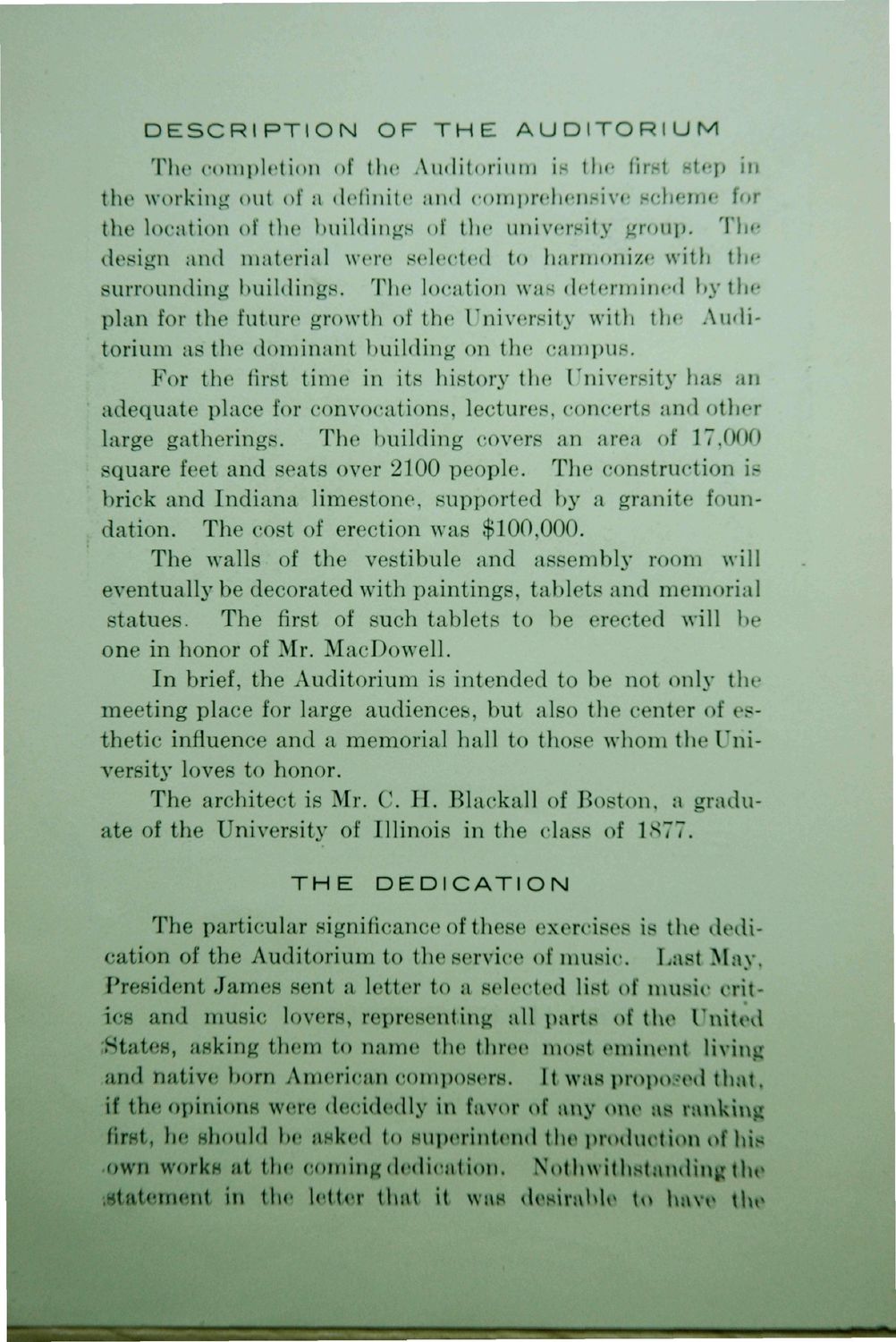| |
| |
Caption: Dedication - Auditorium
This is a reduced-resolution page image for fast online browsing.

EXTRACTED TEXT FROM PAGE:
DESCRIPTION OF THE AUDITORIUM The completion of the Auditorium is the first step in the working out of a definite and comprehensive scheme for the location of the buildings of the university group. The design and material were selected to harmonize with the surrounding buildings. The location was determined by the plan for the future growth of the University with the Auditorium as the dominant building on the campus. For the first time in its history the University has an adequate place for convocations, lectures, concerts and other large gatherings. The building covers an area of 17,(X>0 square feet and seats over 2100 people. The construction is brick and Indiana limestone, supported by a granite foundation. The cost of erection was $100,000. The walls of the vestibule and assembly room will eventually be decorated with paintings, tablets and memorial statues. The first of such tablets to be erected will be one in honor of Mr. MacDowell. In brief, the Auditorium is intended to be not only the meeting place for large audiences, but also the center of esthetic influence and a memorial hall to those whom the University loves to honor. The architect is Mr. C. H. Blackall of Boston, a graduate of the University of Illinois in the class of 1877. THE DEDICATION The particular significance of these exercises is the dedication of the Auditorium to the service of music. Last May, President James sent a letter to a selected list of music critics and music lovers, representing all parts of the United ;States, asking them to name the three most eminent living and native born American composers. It was proposed that* if the opinions were decidedly in favor of any one as ranking first, he should be asked to superintend the production of his own works at the coming dedication. Notwithstanding the statement in the letter that it was denirable to have the
| |